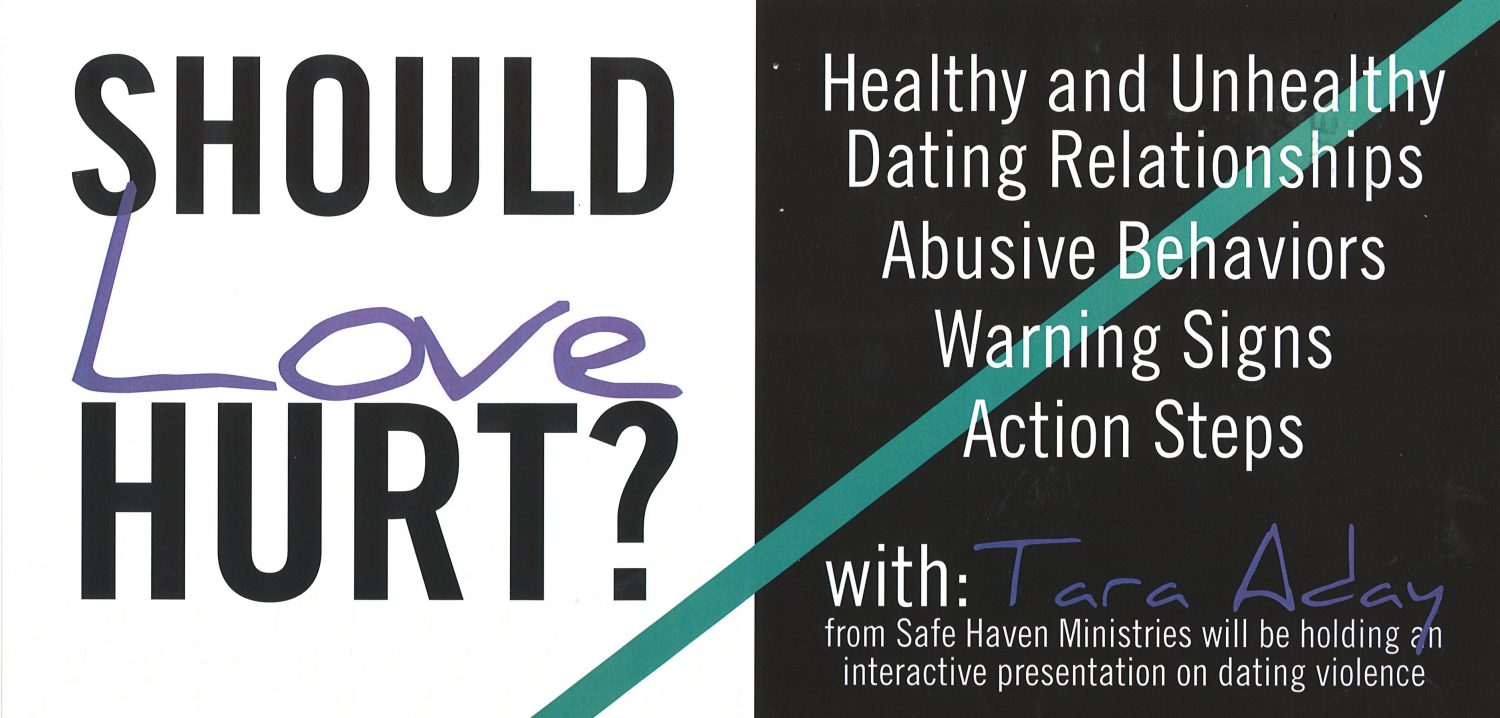As part of the Sexuality Series, Tara Aday, director of prevention and education at Safe Haven Ministries, came to Calvin last week to give several talks on domestic violence and abusive relationships. Safe Haven ministries is a local organization that provides shelter and support to women seeking freedom from domestic abuse.
Aday defined domestic violence as a pattern of learned behavior that one person uses to control another. Violence can come in the form of words, actions, isolation, withholding finances, or even abuse of pets.
Director of the Sexuality Series Julia Smith explained the importance of the event as part of the series. She said that the series “aims to encompass a broad range of discussions about dating, singleness, marriage, porn, sexual assault prevention, LGBT awareness and education, and gender issues. There’s so much more to a Christian approach to sex and relationships than the ‘no sex till you’re married’ message that most of us heard growing up.”
She continued, “We need to be able to talk about what healthy relationships look like — how to recognize when your relationship or a friend’s may be manipulative, controlling, or abusive and what to do about it.”
Aday did just that, getting to the issue of control, and the fear of losing it, as the core motivator in abusive relationships.
“To keep abuse from happening, there must be accountability when limits are crossed for both partners,” said Aday.
The argument that drinking or drugs cause abusive actions is one common way abusers are excused for their actions. Aday was quick to dispel this myth. She explained that, while alcohol or drugs can exaggerate actions, they do not cause any sort of behavior that was not present in the first place.
Aday went on to talk about warning signs of abusive behavior to be aware of in personal relationships.
“Many girls who I’ve talked to at Safe Haven didn’t even know that they were in an abusive relationship until they found themselves answering yes to all the questions on our screening test for abuse. These signs included one partner having excessive control, shaming the other, keeping the other from work or school, controlling who the other spends time with and forcing the other to do things that he or she feels uncomfortable doing.”
Aday spent the most time talking about how best to approach friends who are in abusive relationships. Actions of friends that may sometimes indicate abusive relationships include a sudden withdrawal or depression, isolation and an evident lack of autonomy.
“The most important thing is that you believe what they say,” Aday explained, when asked about how to interact with victims. “They’ll be able to tell by the follow-up questions you ask whether or not you are fully on their side. You need to affirm that it is not their fault, give advice where you can, but respect their decisions, since they are the expert in the situation.”
As the talk finished, Aday pointed out members of Calvin’s Sexual Assault Prevention team (or SAPT) who could be contacted if further advice or counseling was needed. Aday hopes that her talks will spread awareness of abusive relationships, and provide platforms for discussing them.
“The message of ‘Should Love Hurt?’” said Smith in closing, “equips us to be better lovers of God, of our neighbor, and of our own selves. And that’s good news.”








